A worksheet to practice identifying antonyms.
Amazing Antonyms – Words with Opposites Worksheet
As primary school teachers, you know how important it is for students to understand words and their meanings. One key aspect of this is being able to identify antonyms or words that have opposite meanings. We’ve created this worksheet to help your students master this essential language skill!
This worksheet guides students through the process of identifying antonyms. They will have the opportunity to practice independently and receive immediate feedback to help reinforce their understanding. By the end of the worksheet, your students will be able to identify antonyms in any context confidently! Studnets are given a short list of words and must circle the words that are opposites in each group.
More Ideas for Teaching Antonyms
-
Word Games: Incorporate antonyms into word games such as crossword puzzles, word finds, and word association games.
-
Encourage students to share examples of antonyms and discuss why they have opposite meanings. Use discussions to help create classroom anchor charts.
-
Have students act out an antonym’s meaning. For example, two students can act out a scenario where one is happy, and the other is sad.
-
Use visual aids such as flashcards, charts, and diagrams to help students identify antonyms and understand their meanings.
This resource can be used as independent practice after a lesson, or why not use it as part of your lesson by projecting it on the dry-erase board and working through the activity together as a whole class?
Use the drop-down menu to choose between the PDF or Google slides version. An answer key is included in the download.
This resource was created by Jennifer Hall, a teacher in North Carolina and a Teach Starter Collaborator.
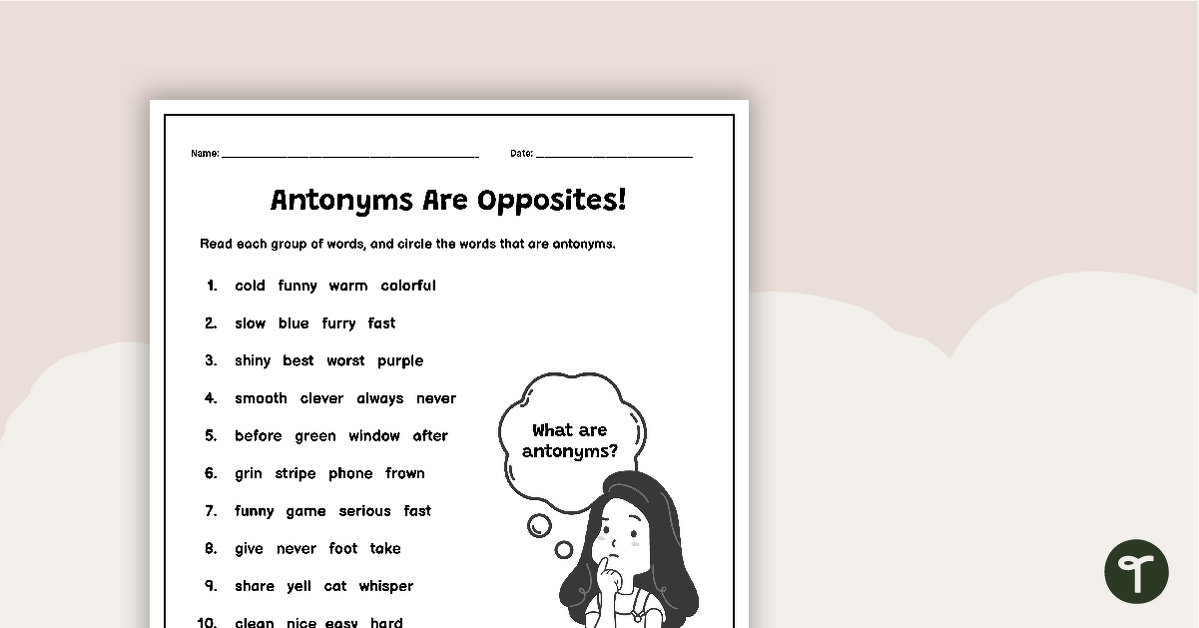

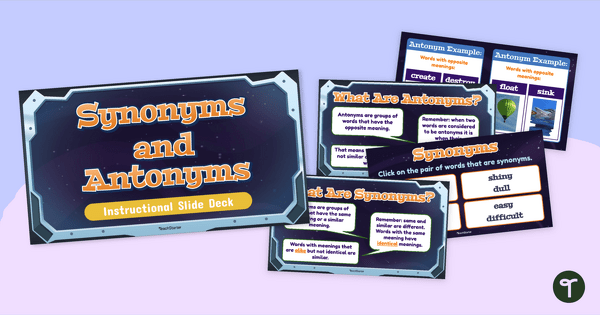
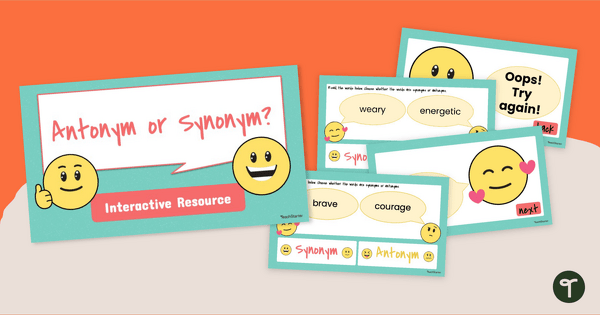
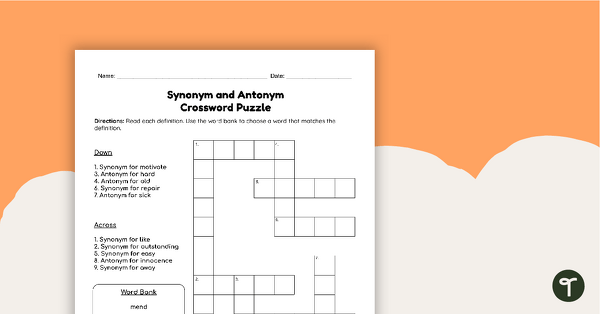
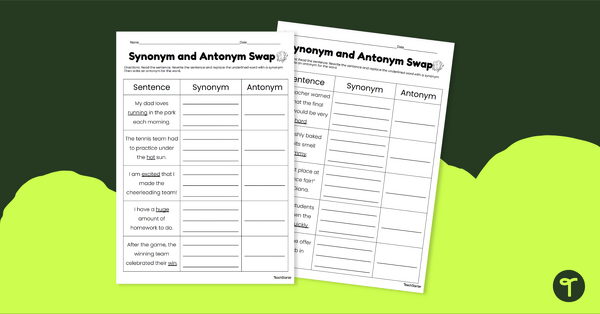
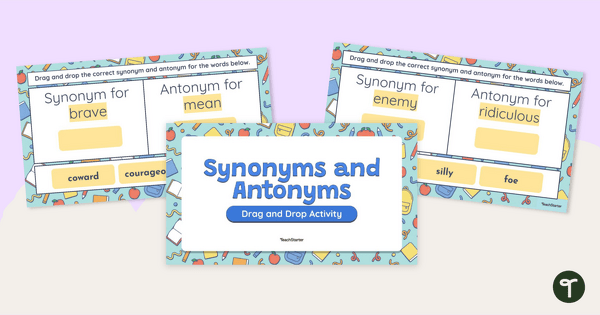
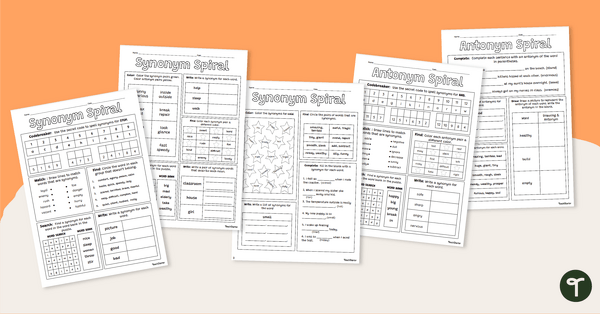
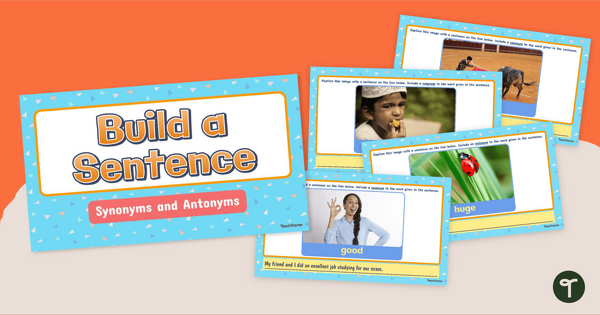
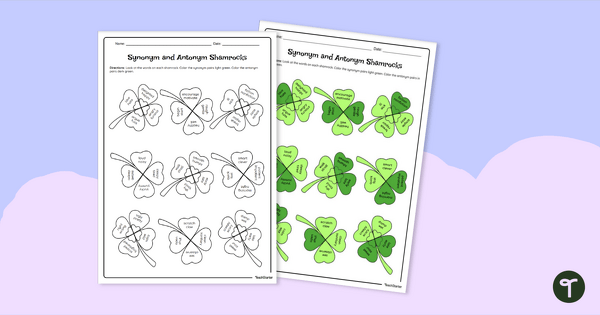
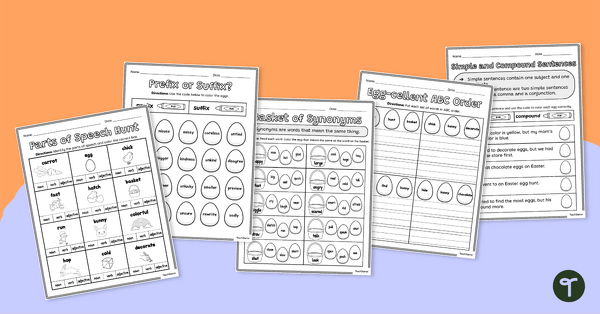
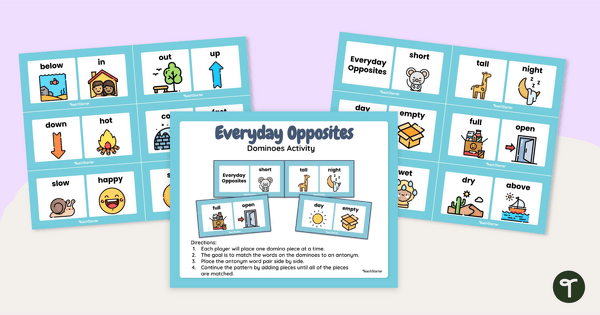
0 Comments
Write a review to help other teachers and parents like yourself. If you'd like to request a change to this resource, or report an error, select the corresponding tab above.